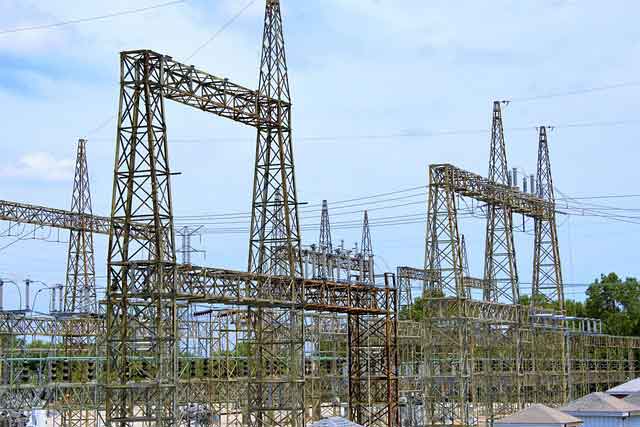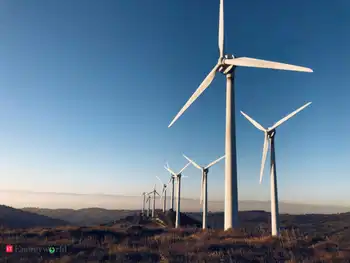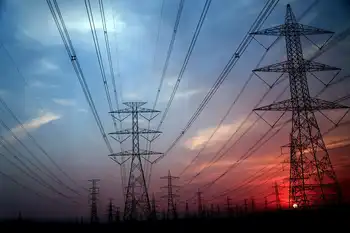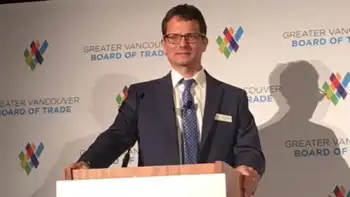Emissions trading market at a standstill
By Globe and Mail
NFPA 70b Training - Electrical Maintenance
Our customized live online or in‑person group training can be delivered to your staff at your location.

- Live Online
- 12 hours Instructor-led
- Group Training Available
When the Montreal stock exchange forged a partnership with the Chicago Climate Exchange three years ago, there were great expectations that a fully functioning North American carbon market was just around the corner.
The resulting Montreal Climate Exchange launched its futures market for greenhouse gas emissions credits with great fanfare 18 months ago, but the results of that promise have been delayed ever since.
During the week of December 7-11, not a single carbon-futures contract was traded.
Indeed, the exchange has registered a mere 257 contracts that commit a buyer to deliver a specified amount of carbon-dioxide emission credits in either January, 2011, or September, 2011, the only two delivery dates traded so far.
In both U.S. and Canada, governments have embraced cap-and-trade plans that would place limits on emissions and provide market-based mechanisms to encourage the most cost-efficient reduction strategies.
But as global leaders now gathered in Copenhagen try to figure out how to make the world reduce its carbon emissions, North America's key market-based system has stalled.
The lack of regulations – or in Canada's case, even a clear sense of the government's plans – has so far prevented the development of robust markets driven by compliance needs.
A handful of companies have launched voluntary funds or marketing efforts for individuals and companies to reduce their carbon footprint by purchasing credits from clean-energy or emission-reduction projects.
But to have a fully functioning market, governments need to limit the amount of greenhouse gases that can be emitted into the atmosphere, and to allow industry to buy allowances – or credits – from firms that can reduce emissions more cheaply.
Proponents are now hoping that a successful conclusion to the Copenhagen climate summit will prompt Washington and Ottawa to provide greater certainty about the future of environmental regulations, which would in turn, provide impetus for market development.
“I think Copenhagen should provide momentum for some kind of climate legislation in Canada,” Leon Bitton, vice-president of research and development at the Montreal exchange, said in an interview. “But there have been a few false starts in the past so I wouldn't dare try to anticipate the future.”
Ottawa is following the lead of the United States, and even with a strong agreement at Copenhagen, it will be several months at least before Congress can pass cap-and-trade legislation.
A rancorous conclusion to the talks could set that timetable back considerably and add to the uncertainty about whether the U.S. will ever pass a cap-and-trade bill. In that case, the Obama administration would have to rely on emissions regulations that don't allow companies to meet their obligations by purchasing emission credits from others.
Though the cap-and-trade system has its critics, proponents insist it is the most efficient method to achieve overall emission reductions. Credits are generated either by regulated industries that achieve greater-than-required reductions, or by non-regulated companies that produce emission credits known as offsets, that are verified by third parties.
The Montreal exchange is part of the TMX Group Inc. that owns the Toronto Stock Exchange. In 2007, it partnered with the Chicago Climate Exchange – which runs North America's largest voluntary climate exchange – to launch trading in futures contracts for companies that wanted to get a head start on the regulation.
The contract that now trades represents a promise from the seller to deliver to the buyer a set volume of offset credits – verified by the federal government – on the date of contract expiry.
It will only have value in the future if there is a so-called compliance market, based on regulations.
In North America, there are a handful of small compliance markets, including Regional Greenhouse Gas Initiative (RGGI), a collective of utilities in the U.S. Northeast, and an offset market in Alberta, the only province in Canada to have emission regulations in place.
The Chicago exchange and the New York Mercantile Exchange both trade RGGI contracts, as well as products based on European emissions credits and United Nations-verified credits from projects in developing countries under the Kyoto Protocol.
The voluntary market, meanwhile, has developed in fits and starts.
Chicago's voluntary market was a pioneer, but the delays in regulation and the recession have undermined it. In mid-2008 – when both Republican and Democratic presidential nominees were backing cap-and-trade – the price for credits topped $7 (US) per tonne of carbon dioxide emissions. They've since fallen to 15 cents.
With onset of the recession, companies simply stopped spending on non-essential things, and that included carbon credits that were used either for marketing purposes, or to prepare for some future regulatory scheme, said Jay Robertson, a Calgary-based broker for Direct Energy, a unit of British-based Centrica PLC.
Existing carbon markets tend to be narrowly focused, over-the-counter efforts. There is, for example, a healthy and growing market for renewable energy credits in the United States, based on state requirements that utilities have a minimum level of renewable power.
In Canada, municipalities are driving the voluntary market, though some private-sector companies continue to participate.
The Bank of Montreal and Toronto-Dominion Bank have committed $13-million to a fund to buy offset credits launched by a Toronto municipal group and managed by Green Power Action Inc.
Toronto-based Direct Energy offers “carbon-neutral natural gas” contracts, in which the buyer pays a premium on their fuel bill to purchase carbon offsets. Buyers include municipalities and transit authorities, though individuals can also purchase the offsets.
By participating in the voluntary market, Direct Energy – one of North America's largest gas and electricity distributors – is preparing for the emergence of a far larger compliance market.
“What we're looking for is some level of certainty for the market to develop – some protocol and rules that provide clarity,” Direct Energy climate strategist Chris Perreault said.











